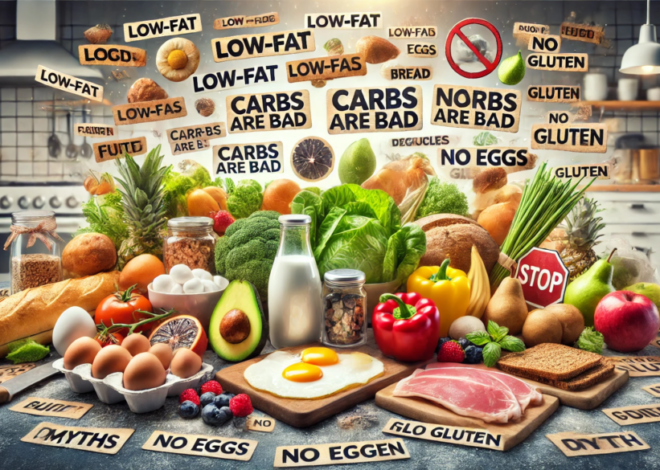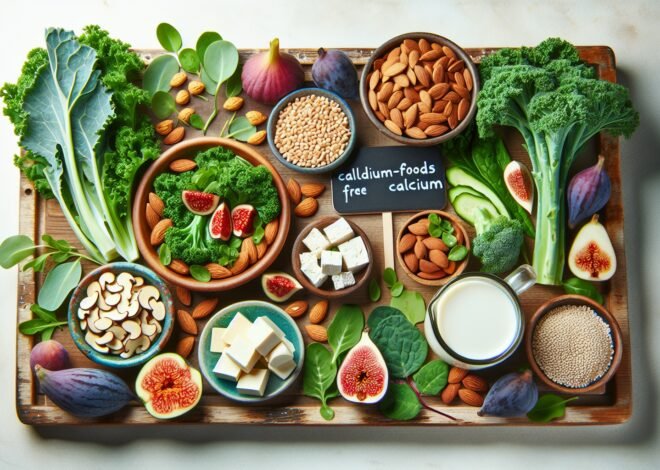
Superfoods: Nutrient-Dense Foods to Include in Your Diet
Superfoods are nutrient-rich foods that provide significant health benefits. They are packed with vitamins, minerals, antioxidants, and other essential nutrients, making them excellent choices for enhancing overall health and well-being. Including superfoods in your diet can boost immunity, improve energy levels, and support various bodily functions. This article explores some of the top superfoods and offers tips on how to incorporate them into your daily meals.
What Are Superfoods?
Superfoods are natural, unprocessed foods that are exceptionally rich in nutrients. They contain high levels of antioxidants, vitamins, minerals, and other essential compounds that can have powerful health benefits. While no single food can provide all the nutrients your body needs, including a variety of superfoods in your diet can help ensure you get a broad spectrum of nutrients.
Top Superfoods to Include in Your Diet
1. Berries
Berries are small, colorful fruits that are high in antioxidants, vitamins, and fiber. They are known for their anti-inflammatory properties and can help protect against chronic diseases.
- Blueberries: Rich in vitamin C, vitamin K, and antioxidants, blueberries can improve brain function and support heart health.
- Strawberries: High in vitamin C, manganese, and antioxidants, strawberries can boost immunity and promote skin health.
- Raspberries: Packed with fiber, vitamin C, and antioxidants, raspberries can aid digestion and support weight management.
How to Include Them: Add berries to smoothies, oatmeal, yogurt, or salads. They can also be enjoyed fresh as a snack.
2. Leafy Greens
Leafy greens are nutrient-dense vegetables that are low in calories but high in vitamins, minerals, and antioxidants. They are excellent sources of vitamins A, C, and K, as well as folate and iron.
- Spinach: Rich in iron, calcium, magnesium, and vitamin K, spinach supports bone health and energy production.
- Kale: High in vitamins A, C, and K, kale is also a good source of antioxidants and can reduce the risk of chronic diseases.
- Swiss Chard: Contains vitamins A, C, and K, as well as magnesium and potassium, which help regulate blood pressure.
How to Include Them: Use leafy greens in salads, smoothies, soups, or as a base for a nutrient-packed bowl.
3. Nuts and Seeds
Nuts and seeds are excellent sources of healthy fats, protein, fiber, and various vitamins and minerals. They are known for their heart-healthy properties and can help regulate blood sugar levels.
- Almonds: High in vitamin E, magnesium, and healthy fats, almonds can support heart health and brain function.
- Chia Seeds: Rich in omega-3 fatty acids, fiber, and protein, chia seeds can aid digestion and provide sustained energy.
- Flaxseeds: Contain omega-3 fatty acids, fiber, and lignans, which have antioxidant properties.
How to Include Them: Add nuts and seeds to yogurt, oatmeal, salads, or smoothies. They can also be used in baking or as a topping for dishes.
4. Avocado
Avocado is a unique fruit known for its high content of healthy monounsaturated fats. It is also rich in fiber, potassium, and vitamins C, E, and K.
- Health Benefits: Avocado can support heart health, improve digestion, and provide essential nutrients for skin health.
How to Include It: Add avocado to salads, smoothies, sandwiches, or toast. It can also be used as a base for creamy sauces and dressings.
5. Quinoa
Quinoa is a gluten-free grain that is rich in protein, fiber, and essential amino acids. It is also a good source of magnesium, iron, and zinc.
- Health Benefits: Quinoa supports muscle growth, aids digestion, and provides a complete protein source for vegetarians and vegans.
How to Include It: Use quinoa as a base for salads, bowls, or side dishes. It can also be used as a substitute for rice or pasta.
6. Turmeric
Turmeric is a bright yellow spice that contains curcumin, a powerful anti-inflammatory and antioxidant compound. It has been used in traditional medicine for centuries.
- Health Benefits: Turmeric can reduce inflammation, improve brain function, and support joint health.
How to Include It: Add turmeric to curries, soups, smoothies, or golden milk. It can also be used as a spice in cooking or taken as a supplement.
7. Green Tea
Green tea is rich in antioxidants, particularly catechins, which can protect cells from damage. It is also a natural source of caffeine and the amino acid L-theanine.
- Health Benefits: Green tea can boost metabolism, improve brain function, and support heart health.
How to Include It: Enjoy green tea as a hot or iced beverage. It can also be used as a base for smoothies or in cooking.
8. Sweet Potatoes
Sweet potatoes are nutrient-dense root vegetables that are high in fiber, vitamins A and C, and potassium. They are a great source of complex carbohydrates and antioxidants.
- Health Benefits: Sweet potatoes can support eye health, boost immunity, and regulate blood sugar levels.
How to Include Them: Bake, roast, or steam sweet potatoes. They can be used in soups, stews, casseroles, or as a side dish.
9. Garlic
Garlic is a flavorful bulb that has been used for its medicinal properties for centuries. It contains sulfur compounds, including allicin, which have various health benefits.
- Health Benefits: Garlic can boost the immune system, reduce blood pressure, and improve heart health.
How to Include It: Use garlic in cooking for added flavor. It can be sautéed, roasted, or used raw in dressings and marinades.
10. Dark Chocolate
Dark chocolate is rich in antioxidants, particularly flavonoids, which can improve heart health. It also contains iron, magnesium, and a small amount of caffeine.
- Health Benefits: Dark chocolate can reduce the risk of heart disease, improve brain function, and provide a mood boost.
How to Include It: Enjoy dark chocolate as a treat, in desserts, or as a topping for yogurt and smoothies.
Tips for Incorporating Superfoods into Your Diet
Start Small
Incorporate one or two superfoods into your meals each week. Gradually increase the variety as you become more comfortable with new ingredients.
Mix and Match
Combine different superfoods in meals to maximize nutrient intake. For example, add berries, chia seeds, and nuts to your morning oatmeal.
Experiment with Recipes
Explore new recipes that feature superfoods. Try making a quinoa salad, green smoothie, or sweet potato fries.
Be Mindful of Portions
While superfoods are nutrient-dense, they can also be calorie-dense. Be mindful of portion sizes, especially with nuts, seeds, and dark chocolate.
Stay Balanced
Superfoods should complement a balanced diet that includes a variety of whole foods. Don’t rely solely on superfoods for nutrition; ensure you’re getting a well-rounded diet.
Conclusion
Superfoods are a valuable addition to any diet, offering a wealth of nutrients and health benefits. By incorporating a variety of superfoods into your meals, you can boost your nutrient intake and support overall well-being. Whether you’re adding berries to your breakfast, using turmeric in your cooking, or enjoying a piece of dark chocolate, these nutrient-dense foods can enhance your health and culinary experience. Remember, the key to a healthy diet is balance and variety, so enjoy exploring the world of superfoods and finding new favorites.
FAQs
What makes a food a “superfood”?
A superfood is a nutrient-rich food that offers significant health benefits. They are typically high in vitamins, minerals, antioxidants, and other beneficial compounds.
Can superfoods replace a balanced diet?
While superfoods are nutritious, they should complement a balanced diet that includes a variety of whole foods. They are not a substitute for a well-rounded diet.
How can I incorporate superfoods into my daily meals?
You can add superfoods to smoothies, salads, oatmeal, soups, and main dishes. Experiment with recipes and find creative ways to include them in your meals.
Are superfoods expensive?
Some superfoods can be pricey, but there are many affordable options like sweet potatoes, garlic, spinach, and oats. Shop seasonally and buy in bulk to save money.
Can superfoods help with weight loss?
Superfoods can support weight loss by providing essential nutrients, promoting satiety, and boosting metabolism. However, they should be part of a balanced diet and healthy lifestyle.
Is dark chocolate a superfood?
Yes, dark chocolate is considered a superfood due to its high antioxidant content and potential health benefits. Choose dark chocolate with at least 70% cocoa content for the best results.











